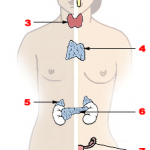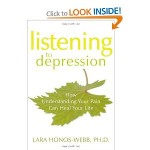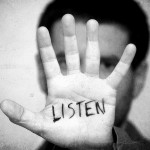Many of us have experienced the instantaneous connection between food and mood. We may find ourselves crunching nervously through bags of potato chips when under pressure for example, or slurping down containers of cool and silky chocolate ice cream in distracted attempts to soothe our sadnesses. However, while an occasional hankering for sweet or starchy “comfort foods” is both normal and expected, for some, the link between negative feelings and out of control eating is far more profound. Recent studies suggest that the suspicious overlap in symptoms of major depression and food addiction may be due to deep biochemical connections that have gone largely ignored in treatment programs until now.
The coexistence of psychiatric diagnoses and problems with appetite is shocking common. One research study concluded that approximately 80 percent of patients with binge eating disorder (BED) and 95 percent of patients with bulimia met the criteria for at least one other diagnosis outlined in the Diagnostic and Statistical Manual of Mental Disorders. Overweight men and women are 25 percent more likely to suffer from mood disorders than the rest of the population. Between 15 percent and 40 percent of patients with eating disorders also struggle with substance abuse.
Strikingly, 75 percent of patients with eating disorders also suffer from depression. For those individuals with binge eating disorder who are overweight, one study found that rates of depression are even higher than for individuals who are overweight but do not have binge eating disorder. In this particular study, researchers found that symptoms of depression led to binge eating episodes. Other studies have found that depressive symptoms, including low self-esteem, predicted increases in binge eating, demonstrating further evidence of the relationship between depression and binge eating. These results suggest that for some binge eating is a way to regulate emotion, however they also reveal that there is something more to the association between food addiction and depression than previously thought—something disruptive, persistent, and physiological.
A look into the intricate neurochemical underpinnings of depression and binge eating disorder provides a clearer understanding of the biological nature of their troubling comorbidity. Interestingly, depression and food addiction both involve alterations in neurotransmitters, the substances that relay messages from one brain cell to another and then to the rest of the body. We know that imbalances in any of the neurotransmitters can wreak havoc with brain circuitry and predispose individuals to mental and physical distress. Normal levels of serotonin, the neurotransmitter linked most closely to satisfaction, lead both to emotional satisfaction and a sense of fullness after a meal. Low levels, on the other hand, can lead to depression and a tendency to binge on sweet and starchy foods. In fact, one study looking at how depression and a gene associated with lower levels of serotonin related to binge eating found that depressed children and older females who carried this gene were more likely to engage in binge eating behaviors.
In the context of a biochemical perspective on binge eating, this correlation makes sense. For some binge eating foods begins as a way to find a moment of much needed relief from depressive tendencies, and to fill the emotional void left by a lack of serotonin. However, what begins as a seemingly innocent attempt to self-soothe, quickly gives way to a complex cycle of addiction in the body. The flood of endorphins from eating large amounts of food only temporarily alters the neurochemistry of the brain, providing brief periods of solace from emotional distress; but these are not lasting. Ultimately, the demand for food intake to achieve such pacifying effects only increases over time and the coping mechanism completely fails, exacerbating instabilities with mood.
More research is needed to examine the precise mechanisms by which a serotonin deficiency can affect food, appetite, weight gain, and mood, and the causal nature of this overlap. However it is evident from the current body of scientific literature, that a holistic approach to investigating the interplay between an individual’s relationship to food and co-existing mood disorders is essential in order for successful recovery opportunities to exist. Treating one problem in isolation is not enough. It is only by comprehensively assessing the neurochemical commonalities underlying such complex psychological conditions that sustainable treatment solutions become possible.
By Stephen B. Jones, M.D., psychiatrist.























